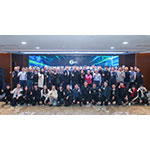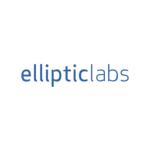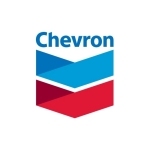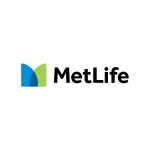BEIJING--(BUSINESS WIRE)--#ASC--On January 4th, the inaugural ceremony for the 2024 ASC Student Supercomputer Challenge (ASC24) unfolded in Beijing. With a global interest, ASC24 has garnered the participation of over 300 university teams. Following the rigorous preliminary round, the chosen teams are set to clash in the finals hosted at Shanghai University from April 9 to 13. The competition spectrum encompasses tasks such as optimizing Large Language Model inference, Seepage Numerical Simulation, and tackling the HPL and HPCG benchmarks. Distinguished guests, including academicians from the Chinese Academy of Sciences and the Chinese Academy of Engineering, as well as esteemed experts and scholars in high-performance computing and artificial intelligence, joined representatives from participating teams in gracing the ceremony.
The ASC24 Large Language Model (LLM) Inference Optimization Challenge has become a focal point of attention for all the participants. As the training and deployment of Large Language Models (LLMs) continue to advance rapidly, there is a heightened industry emphasis on enhancing the performance and cost efficiency of LLM inference. In this challenge, participating teams are tasked with constructing and optimizing inference engines using the widely adopted open-source LLM, LLaMA2. The primary objective is to achieve high-throughput inference on sample datasets provided by the organizing committee, with the LLaMA2 model boasting an impressive 70 billion parameters. Teams contesting for victory must demonstrate a comprehensive understanding and mastery of common parallel methods applicable to LLMs. Additionally, they are required to leverage a range of techniques to optimize the inference process, showcasing their proficiency in navigating the intricacies of LLM inference.
The OpenCAEporo task in ASC24 is designed to delve into the intricate flow patterns and characteristics of multiphase fluids within porous media. Participating teams are tasked with simulating the seepage of multiphase fluids, including oil, gas, and water, specifically in scenarios related to petroleum extraction. The challenge requires teams to skillfully optimize large-scale parallel computing processes, with a focus on improving the computing performance and parallel efficiency of discrete algorithms. Beyond the confines of petroleum extraction, the applications of seepage mechanics are broad and impactful. The insights gained from this task have far-reaching implications, influencing scientific research in environmental protection, earthquake prediction, and biomedicine. Moreover, the principles of seepage mechanics find practical applications in diverse engineering techniques, ranging from preventing ground subsidence and seawater intrusion to constructing large-scale water conservancy and hydropower projects, agricultural and forestry initiatives, and permafrost engineering. The OpenCAEporo task thus serves as a gateway to understanding and addressing challenges across a spectrum of scientific and engineering domains.
Jack Dongarra, Member of US National Academy of Engineering, Turing Award winner, Distinguished Professor at the Oak Ridge National Laboratory and the University of Tennessee, and ASC Advisory Committee Chair, stated that ASC serves to challenge and inspire the next generation of high-performance computing (HPC) scientists and engineers to deliver innovative solutions using the most cutting-edge technologies. ASC has been described as the world's largest supercomputer competition, striving to foster the next generation of young talented students to explore, inspire, innovate, and collaborate in supercomputing and artificial intelligence.
Nie Qing, Vice President of Shanghai University, the host of the ASC24 finals, stated that Shanghai University is one of the first universities in China to develop and apply HPC clusters. By hosting the ASC competition, the university aims to provide a broader platform for more young talents to learn cutting-edge technologies and applications, and cultivates their team collaboration skills, innovative thinking, and practical abilities. The goal is to enhance learning, teaching, and research through competition.
ASC24 has successfully drawn university teams from diverse countries and regions across the globe, creating a dynamic and competitive field. The participating teams include seasoned champions with a history of success in international supercomputing competitions, as well as enthusiastic newcomers making their debut in this challenging arena. To ensure that all participating advisors and students are well-prepared for the intense competition, the ASC24 organizing committee conducted comprehensive training camps. Renowned experts from prestigious universities and research institutions in China were invited to guide participants through various aspects of the competition. The training sessions covered a wide array of topics, including ASC competition rules, cluster construction and optimization, parallel program design, and the intricacies of LLMs. Furthermore, experts introduced the specifics of the competition tasks and shared effective problem-solving approaches. The training camps also featured valuable insights from past ASC award-winning teams, providing a platform for sharing experiences and strategies. This collaborative and educational approach aims to empower all participating teams with the knowledge and skills necessary to excel in the ASC24 competition.
About ASC
The ASC Student Supercomputer Challenge is the world's largest student supercomputer competition, sponsored and organized by the Asia Supercomputer Community with support from experts and institutions across Asia, Europe, and America. The main objectives of ASC are to encourage the exchange and training of young supercomputing talent from different countries, improve supercomputing applications and R&D capacity, boost the development of supercomputing, and promote technical and industrial innovation. The first ASC Student Supercomputer Challenge was held in 2012 and has since attracted over 10,000 undergraduates from all over the world. Learn more for ASC at http://asc-events.net/.
Contacts















